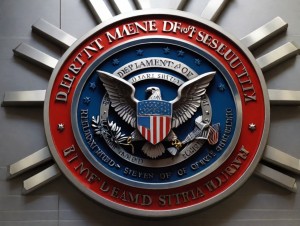In a significant development for the world of artificial intelligence (AI), China has emerged as the leading producer of AI talent, outstripping the United States by producing nearly half of the world’s top AI researchers. This revelation comes from a recent study conducted by MacroPolo, a think tank associated with the Paulson Institute, renowned for fostering constructive relations between the U.S. and China.
Rise of China’s AI dominance
The study, which analyzed the backgrounds of researchers presenting papers at the 2022 Conference on Neural Information Processing Systems (NeurIPS), highlights China’s meteoric rise in AI prowess. Previously, China accounted for about one-third of the world’s top AI talent, but this figure has now surged, leaving the United States trailing.
For much of the past decade, the United States had benefited from a brain drain of China’s top minds, with many pursuing doctoral degrees in American universities and subsequently choosing to stay. However, the tide has begun to turn, with an increasing number of Chinese researchers opting to remain in their home country. This shift holds significant implications as China and the United States vie for supremacy in AI—a technology with profound implications for productivity, industry strength, and innovation.
Implications for AI development
Generative AI, particularly prominent in Silicon Valley and China, has grown exponentially, attracting substantial funding and investment. Notably, U.S. tech giants like Google and startups like OpenAI have spearheaded this surge. However, rising geopolitical tensions between Beijing and Washington could deter some researchers from engaging in cross-border collaborations.
China’s ascension as an AI powerhouse is partly attributed to its substantial investment in AI education. Since 2018, the country has established over 2,000 undergraduate AI programs, with over 300 in its most prestigious universities. However, it’s worth noting that these programs often focus more on AI applications in industry and manufacturing rather than the generative AI technologies dominating the American AI landscape.
The research underscores the critical role of Chinese-born researchers in bolstering AI competitiveness in the United States. Chinese nationals now comprise 38 percent of the top AI researchers working in the U.S., compared to 37 percent who are American-born. This highlights the interconnectedness of the global AI talent pool and the importance of attracting and retaining top talent irrespective of nationality.
Policy challenges and conundrums
The influx of Chinese AI researchers into the United States presents policymakers with a delicate balancing act. While efforts to counter Chinese espionage are necessary, policies that discourage the flow of top Chinese computer engineers could inadvertently hinder U.S. AI competitiveness. The track record of U.S. policymakers in navigating this issue has been mixed, with some initiatives criticized for inadvertently deterring talent from coming to the United States.
Despite recent shifts, the United States remains a global AI research and development hub, hosting approximately 42 percent of the world’s top talent. However, this represents a decline from its previous dominance, signaling a shifting landscape in global AI dynamics. As China continues to invest heavily in AI education and research, the rivalry between the two superpowers for AI supremacy is poised to intensify in the coming years.
China’s emergence as the leading producer of AI talent marks a significant milestone in the global AI landscape, with profound implications for technological innovation, industry competitiveness, and geopolitical dynamics. As the competition between China and the United States escalates, both nations must navigate complex policy challenges to ensure continued progress in AI development while fostering collaboration and innovation on a global scale.





